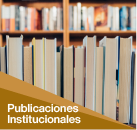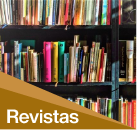Mostrar el registro sencillo del ítem
Territorio sagrado y escuela: Los saberes de la Tutapa para comenzar a hacer chacra, como Proyecto de Aprendizaje para estudiantes de V ciclo de la IE Molle Molle
| dc.contributor.advisor | Guevara Zambrano, Carlos Andrés | |
| dc.contributor.author | Roman Huaman, Yordi | es_PE |
| dc.date.accessioned | 2025-06-02T22:59:28Z | |
| dc.date.available | 2025-06-02T22:59:28Z | |
| dc.date.issued | 2024-11-25 | |
| dc.identifier.uri | http://repositorio.pukllasunchis.org/xmlui/handle/PUK/194 | |
| dc.description.abstract | La presente investigación aborda la problemática de la falta de práctica de los saberes ancestrales del territorio, que algunos miembros de la misma comunidad evitan transmitir a sus hijos, por considerar que estos saberes no sirven para sus estudios. Con esta investigación se quiere recuperar saberes ancestrales del territorio de la comunidad de Mollemolle, Cusco, como una manera de acercar a los estudiantes a los saberes ancestrales; dando más importancia a éstos desde la escuela misma. Para esto se indagaron los temas centrales que fueron Territorio Sagrado, Educación Intercultural Bilingüe y Saberes Ancestrales, los cuales se integran en la elaboración y desarrollo de un Proyecto de Aprendizaje construido desde una práctica cultural ancestral identificada con los sabios de la comunidad, llamada tutapa, que reúne cuatro saberes ancestrales el takapay o p’anapay, aha ruway, taclla y haywarikuy, los cuales fueron incorporados en este proyecto de aprendizaje para trabajar con y para los estudiantes del ciclo IV de la Institución Educativa Mollemolle, con el objetivo de fomentar su identidad cultural. Esta investigación arrojó, entre otros resultados, la integración de aprendizajes curriculares con saberes ancestrales y dejó reflexiones importantes en la misma comunidad, como la recuperación de la tutapa desde sus prácticas ancestrales. | es_PE |
| dc.description.abstract | Abstract The present research addresses the problem of the lack of practice of the ancestral knowledge of the territory, which some members of the same community avoid transmitting to their children, considering that this knowledge is not useful for their studies. This research aims to recover ancestral knowledge from the territory of the Mollemolle community, Cusco, as a way to bring students closer to ancestral knowledge; giving more importance to these from the school itself. For this, the central themes that were investigated were Sacred Territory, Bilingual Intercultural Education and Ancestral Knowledge, which are integrated into the elaboration and development of a Learning Project built from an ancestral cultural practice identified with the wise men and women of the community, called tutapa. which brings together four ancestral knowledges, takapay or p’anapay, aha ruway, taclla and haywarikuy, which were incorporated into this learning project to work with and for the students of cycle IV of the Mollemolle Educational Institution, with the aim of promoting their cultural identity. This research yielded, among other results, the integration of curricular learning with ancestral knowledge and left important reflections in the community itself, such as the recovery of the tutapa from its ancestral practices. Keywords: Ancestral Knowledge, Sacred Territory, Bilingual Intercultural Education, Tutapa, p’anapay, aha ruway, Taclla, Haywarikuy. | es_PE |
| dc.description.abstract | Pisi rimayllapi willasayki Kay investigacion niska, allpamanta ñawpa yachaykunata mana rurashkamanta llakitami rikun, chaytami wakin ayllullaktamanta runakuna mana wawankunaman kachachinkuchu, kay yachayka mana yachanapak allichu kashkata rikushpa. Kay investigacion ñawpa yachaykunata Mollemolle ayllullaktamanta, Cusco llaktamanta, kutin hapinatami munan, yachakukkunata ñawpa yachaykunaman asuykachinkapak; kaykunata aswan chaninchaspa kikin yachaywasimantapacha. Chaypaqmi investigasqa karqan chawpi temakuna, chaykunan karqan Territorio Sagrado, Educación Intercultural Bilingüe, Conocimiento Ancestral nisqakuna, chaykunan huñusqa kashan huk Proyecto de Aprendizaje nisqa elaboración nisqapi, wiñachiypi ima, chaymi ruwasqa karqan huk práctica cultural ancestral nisqamanta, llaqtaq yachaysapa runakunawan riqsichisqa, tutapa nisqa. Chaymi tawa ñawpaq yachaykunata huñun, takapay utaq p’anapay, aha ruway, taclla hinaspa haywarikuy, chaykunatam kay yachay proyectoman churarqaku Institución Educativa Mollemollepa ciclo IV nisqapi yachakuqkunawan llamkanankupaq, identidad culturalninkuta riqsichinankupaq. Kay investigacion niska, wak ruwaykunawan ima, curricular yachaywan ñawpaq yachaykunawan tinkuchiyta qusqa, chantapis kikin ayllupi ancha chaniyuq yuyaymanaykunata saqirqa, ahinataq tutapa ñawpaq ruwayninkunamanta kutichiynin. Chanin rimaykuna: Yachaykuna Ñawpaqkunamanta, Sumaq Pacha, Yachay Ayni Rimanakuy, Tutapa, p’anapay, aha ruway, Taclla, Haywarikuy | es_PE |
| dc.format | application/pdf | es_PE |
| dc.language.iso | spa | es_PE |
| dc.publisher | Asociación Pukllasunchis | es_PE |
| dc.rights | info:eu-repo/semantics/openAccess | es_PE |
| dc.rights.uri | https://creativecommons.org/licenses/by-nc-sa/4.0/ | es_PE |
| dc.subject | Saberes Ancestrales | es_PE |
| dc.subject | territorio sagrado | es_PE |
| dc.subject | Educación Intercultural Bilingüe | es_PE |
| dc.title | Territorio sagrado y escuela: Los saberes de la Tutapa para comenzar a hacer chacra, como Proyecto de Aprendizaje para estudiantes de V ciclo de la IE Molle Molle | es_PE |
| dc.type | info:eu-repo/semantics/bachelorThesis | es_PE |
| dc.type.version | info:eu-repo/semantics/publishedVersion | es_PE |
| dc.publisher.country | PE | es_PE |
| dc.subject.ocde | https://purl.org/pe-repo/ocde/ford#5.03.01 | es_PE |
| renati.advisor.orcid | https://orcid.org/0000-0002-2972-3929 | es_PE |
| renati.type | https://purl.org/pe-repo/renati/type#tesis | es_PE |
| renati.level | https://purl.org/pe-repo/renati/nivel#tituloProfesional | es_PE |
| renati.discipline | 112096 | es_PE |
| renati.juror | Eguiluz Duffy, Cecilia María | es_PE |
| renati.juror | Villavicencio Callo, Tanya | es_PE |
| renati.juror | Conde Marquina, Antonieta | es_PE |
| thesis.degree.name | Licenciado en Educación Primaria Intercultural Bilingüe | es_PE |
| thesis.degree.discipline | Educación Primaria Intercultural Bilingüe | es_PE |
| thesis.degree.grantor | Escuela de Educación Superior Pedagógica Privada Pukllasunchis | es_PE |
| renati.author.dni | 74363910 | |
| renati.advisor.cext | 001918674 |







